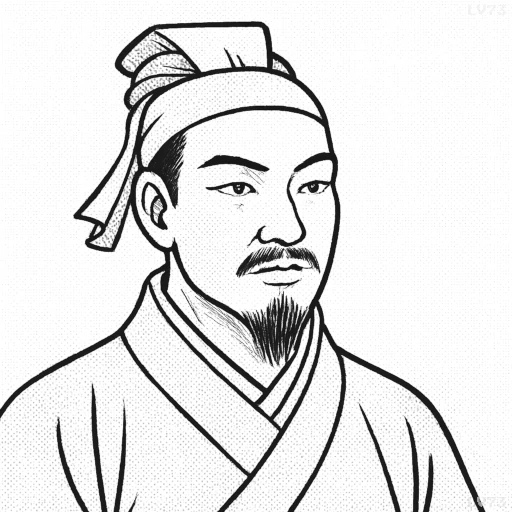“The supreme art of war is to subdue the enemy without fighting.”

- 544 BC-496 BC
- Born in China
- Military strategist, military strategist
table of contents
Quote
“The supreme art of war is to subdue the enemy without fighting.”
Explanation
In this quote, Sun Tzu highlights one of the most profound strategies in warfare: achieving victory without the need for direct combat. The idea of subduing the enemy without fighting suggests that the most skilled commander is not one who seeks out battle but one who can undermine the enemy’s will to fight or render them incapable of resisting without ever drawing a sword. This can be accomplished through various means such as psychological warfare, diplomacy, deception, or even economic pressure. By manipulating the situation, a commander can achieve their objectives without the loss of life or resources typically associated with battle. The ultimate goal is to break the enemy’s resolve, confuse them, and create an environment where they choose to surrender or retreat rather than engage in a costly confrontation.
This principle remains relevant in modern warfare, business, politics, and international relations. In business, companies can achieve success by outmaneuvering their competitors without direct confrontation. For example, Microsoft’s dominance in the software industry in the late 20th century was achieved not through direct competition with every small competitor but through strategic partnerships, acquisitions, and creating products that became standards in the industry. In international relations, countries use diplomacy and economic sanctions to compel other nations to change their behavior without resorting to military force. An example of this is the Cold War, where the United States used economic, cultural, and political means to exert influence over the Soviet Union and its allies, rather than engaging in direct warfare. In negotiations, the ability to persuade or coerce an opponent into agreement, without ever resorting to force or coercion, embodies the principle of subduing the enemy without fighting.
Historically, this idea has been applied by many great military leaders. Machiavelli discussed similar concepts in his work, where he suggested that the best rulers use manipulation and indirect influence to achieve their goals. In World War II, Winston Churchill used a combination of diplomacy and psychological warfare to undermine Nazi Germany’s position before engaging in military action. Sun Tzu’s principle is also evident in the strategy used by Alexander the Great, who often used deception and diplomacy to win over adversaries before resorting to battle. In ancient China, the warring states period saw numerous commanders applying Sun Tzu’s philosophy of outsmarting the enemy, using strategies like feigned retreats or spreading misinformation to weaken the enemy’s resolve before engaging in combat. By subduing the enemy without fighting, commanders ensure victory with minimal cost, which remains a hallmark of true strategic genius.
Would you like to share your impressions or related stories about this quote in the comments section?


